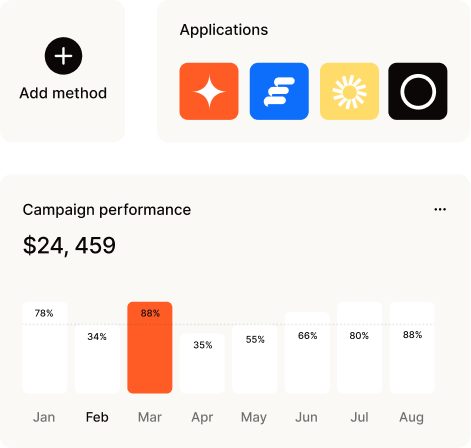
1. Introduction: The Evolution of Artificial Intelligence in Business
Artificial Intelligence has been a game-changer for businesses over the past decade, driving automation, improving decision-making, and transforming customer engagement. However, as markets evolve faster than ever, traditional AI systems—built on static models—are no longer enough. Enter Adaptive AI: a new generation of intelligent systems capable of learning continuously, adjusting in real-time, and evolving with business needs. This dynamic approach marks a major leap forward in operational efficiency and innovation.
2. What Makes Adaptive AI Different
Unlike conventional AI that relies on fixed algorithms and pre-trained data, Adaptive AI constantly refines its models based on new information, context, and feedback. It doesn’t just react—it evolves. This means that businesses using Adaptive AI benefit from systems that grow smarter with every transaction, customer interaction, or market fluctuation. In essence, Adaptive AI transforms from a static tool into a living, learning digital partner.
3. Real-Time Decision-Making and Agility
In business operations, timing is everything. Adaptive AI enables real-time decision-making by analyzing live data streams and adjusting processes instantly. For example, in supply chain management, it can predict disruptions and reroute logistics automatically. In finance, it can detect market changes and adjust investment strategies within seconds. This agility allows businesses to respond to challenges and opportunities as they happen—giving them a decisive competitive edge.
4. Enhancing Customer Experience Through Personalization
Customer expectations are constantly changing, and static AI systems struggle to keep up. Adaptive AI, however, continuously learns from customer behavior, preferences, and feedback to deliver hyper-personalized experiences. Whether it’s recommending products, resolving issues, or tailoring communication styles, Adaptive AI ensures every interaction feels relevant and timely. This level of personalization builds stronger relationships and boosts long-term customer loyalty.
5. Optimizing Operational Efficiency
Efficiency lies at the heart of every successful business operation, and Adaptive AI takes optimization to a whole new level. By monitoring workflows, resource allocation, and performance metrics, it can identify inefficiencies and suggest improvements on the fly. For instance, it can adjust workforce schedules based on demand trends or optimize production timelines to reduce waste. The result is leaner, faster, and more intelligent operations.
6. Empowering Data-Driven Strategy
Adaptive AI thrives on data—collecting, analyzing, and learning from it continuously. This empowers organizations to make smarter strategic decisions supported by real-time insights rather than outdated reports. It detects subtle patterns and correlations that human analysis might miss, helping leaders forecast market changes, identify risks early, and capitalize on emerging trends. This constant feedback loop ensures decisions remain relevant and effective.
7. Boosting Innovation and Product Development
Innovation is no longer about intuition alone; it’s about intelligence. Adaptive AI accelerates product development by analyzing consumer trends, predicting future demands, and even generating design recommendations. Companies can use AI-driven simulations to test new ideas, shorten development cycles, and bring better products to market faster. By continuously learning from user data, Adaptive AI helps businesses stay ahead of competitors in an ever-evolving landscape.
8. Strengthening Risk Management and Security
Adaptive AI also plays a critical role in identifying and mitigating risks. In cybersecurity, for example, it learns from new attack patterns and adjusts defense protocols automatically. In finance or compliance, it detects anomalies in real time, preventing fraud and ensuring regulatory adherence. Its ability to adapt makes it a powerful guardian against evolving threats, keeping business operations secure and resilient.
9. Human-AI Collaboration for Smarter Workflows
Adaptive AI doesn’t replace people—it empowers them. By handling repetitive and analytical tasks, it allows employees to focus on creative problem-solving, strategic thinking, and customer engagement. Over time, the AI learns from human feedback, improving its accuracy and usefulness. This partnership between human intuition and machine intelligence creates a smarter, more adaptive workplace where innovation thrives.
10. The Future of Adaptive AI in Business Operations
The rise of Adaptive AI signals the beginning of a new business era—one defined by continuous learning, intelligent automation, and proactive adaptability. As AI systems become more self-sufficient and context-aware, they will manage complex operations with minimal human intervention. Businesses that invest in Adaptive AI today will gain lasting advantages in efficiency, agility, and innovation. The future of business operations lies not in static automation but in intelligent adaptability—and Adaptive AI is leading the charge.
Conclusion
Adaptive AI represents the next evolution of business intelligence—a shift from reactive systems to dynamic, self-improving ecosystems. Its ability to learn, evolve, and respond in real-time makes it an invaluable asset in a world driven by speed and complexity. From enhancing customer experiences to optimizing workflows and strengthening resilience, Adaptive AI is transforming how businesses operate and compete. As the technology matures, organizations that embrace adaptability will not just survive change—they’ll shape it.
